
Live recordings from 1973-74 from the trio of drummer John Stevens, guitarist Derek Bailey, and saxophonist Trevor Watts, dynamic works performed "impromptu" with a wealth of ideas as these innovators demonstrate the skills that helped define them as masterful players.
Out of Stock
Quantity in Basket: None
Log In to use our Wish List
Shipping Weight: 3.00 units
Sample The Album:
Derek Bailey-acoustic guitar, electric guitar
Trevor Watts-soprano saxophone
John Stevens-drums, cornet
Click an artist name above to see in-stock items for that artist.
UPC: 0616932200595
Label: FMR
Catalog ID: 360-0913
Squidco Product Code: 18697
Format: CD
Condition: New
Released: 2013
Country: Great Britain
Packaging: Digipack
Recorded by Martin Davidson at the Little Theatre Club, Garrick Yard, St Martins Lane, London in 1973 and 1974.
"Imagine three scholars sitting under dim lights at a coffeehouse discussing world politics or social disorder? Dynamics of the Impromptu may imply such a scenario as three of the founding fathers of the British Free-Jazz movement coalesced at London's "Little Theater Club" in 1973 and 1974. Dynamics of the Impromptu represents previously unreleased material which signifies a flourishing and historical time for this endearing and important era of free-improvised jazz.
Bailey, Stevens and Watts perform 6 improvised pieces titled "Impromptu Dynamics 1-6". Impromptu is an elegant word indicating spontaneity or in musical jargon -"improvised". Here, the three masters immerse themselves in articulate dialogue through unconventional musical invention. Watts' spurious and at times briefly stated activities on soprano sax intersect Bailey's uncanny, totally unique chord structures, harmonics and ingenious thematic approach. The late John Stevens, well known for his cutting edge Spontaneous Music Ensemble is a true clinician here and proves beyond a doubt that he was one of the early innovators or stylists within the British Free movement. Stevens, subtle and intricate patterns keep pace through suggestion or rhythmic intimation, which contrasts textbook style meter and tempo.
These pieces run the gamut from whispery low key musings through enraging or boisterous call and response. The moods constantly shift and evolve as Watts, Bailey and Stevens purvey musical structures that defy logic. Emotions flare up as in "Impromptu Dynamics #6". Arguments or debates are imminent. The sensibilities of unity and collaboration resurface as the music seems to transcend conventional ideology or acceptable agendas.
Dynamics of the Impromptu provides a glistening snapshot of a thriving British music scene, which had initiated a campaign of renaissance spirit and anarchistic behavior enacted through music."-Glenn Astarita, All About Jazz

The Squid's Ear!
Get additional information at All About Jazz
Artist Biographies
• Show Bio for Derek Bailey "Derek Bailey (29 January 1930 - 25 December 2005) was an English avant-garde guitarist and leading figure in the free improvisation movement. Bailey was born in Sheffield, England. A third-generation musician, he began playing the guitar at the age of ten, initially studying music with his teacher and Sheffield City organist C. H. C. Biltcliffe, an experience that he did not enjoy, and guitar with his uncle George Wing and John Duarte. As an adult he worked as a guitarist and session musician in clubs, radio, dance hall bands, and so on, playing with many performers including Morecambe and Wise, Gracie Fields, Bob Monkhouse and Kathy Kirby, and on television programs such as Opportunity Knocks. Bailey's earliest foray into 'what could be called free improvised music' was in 1953 with two other guitarists in their shared flat in Glasgow. He was also part of a Sheffield-based trio founded in 1963 with Tony Oxley and Gavin Bryars called "Joseph Holbrooke" (named after the composer, whose work they never actually played). Although originally performing relatively "conventional" modal, harmonic jazz this group became increasingly free in direction. Bailey moved to London in 1966, frequenting the Little Theatre Club run by drummer John Stevens. Here he met many other like-minded musicians, such as saxophonist Evan Parker, trumpet player Kenny Wheeler and double bass player Dave Holland. These players often collaborated under the umbrella name of the Spontaneous Music Ensemble, recording the seminal album Karyobin for Island Records in 1968. In this year Bailey also formed the Music Improvisation Company with Parker, percussionist Jamie Muir and Hugh Davies on homemade electronics, a project that continued until 1971. He was also a member of the Jazz Composer's Orchestra and Iskra 1903, a trio with double-bass player Barry Guy and tromboneist Paul Rutherford that was named after a newspaper published by the Russian revolutionary Vladimir Lenin. In 1970, Bailey founded the record label Incus with Tony Oxley, Evan Parker and Michael Walters. It proved influential as the first musician-owned independent label in the UK. Oxley and Walters left early on; Parker and Bailey continued as co-directors until the mid-1980s, when friction between the men led to Parker's departure. Bailey continued the label with his partner Karen Brookman until his death in 2005[citation needed]. Along with a number of other musicians, Bailey was a co-founder of Musics magazine in 1975. This was described as "an impromental experivisation arts magazine" and circulated through a network of like-minded record shops, arguably becoming one of the most significant jazz publications of the second half of the 1970s, and instrumental in the foundation of the London Musicians Collective. 1976 saw Bailey instigate Company, an ever-changing collection of like-minded improvisors, which at various times has included Anthony Braxton, Tristan Honsinger, Misha Mengelberg, Lol Coxhill, Fred Frith, Steve Beresford, Steve Lacy, Johnny Dyani, Leo Smith, Han Bennink, Eugene Chadbourne, Henry Kaiser, John Zorn, Buckethead and many others. Company Week, an annual week-long free improvisational festival organised by Bailey, ran until 1994. In 1980, he wrote the book Improvisation: Its Nature and Practice. This was adapted by UK's Channel 4 into a four-part TV series in the early '90s, edited and narrated by Bailey. Bailey died in London on Christmas Day, 2005. He had been suffering from motor neurone disease." ^ Hide Bio for Derek Bailey • Show Bio for Trevor Watts "Trevor Charles Watts (born 26 February 1939 in York) is an English jazz and free-improvising alto and soprano saxophonist. He is largely self-taught, having taken up the cornet at age 12 then switched to saxophone at 18. While stationed in Germany with the RAF (1958-63), he encountered the drummer John Stevens and trombonist Paul Rutherford. After being demobbed he returned to London. In 1965 he and Stevens formed the Spontaneous Music Ensemble, which became one of the crucibles of British free improvisation. Watts left the band to form his own group Amalgam in 1967, then returned to SME for another stretch that lasted until the mid-1970s. Another key association was with the bassist Barry Guy and his London Jazz Composers' Orchestra, an association that lasted from the band's inception in the 1970s up to its (permanent?) disbandment in the mid-1990s. Though he was initially strongly identified with the avant-garde, Watts is a versatile musician who has worked in everything from straight jazz contexts to rock and blues. His own projects have come increasingly to focus on blending jazz and African music, notably the Moiré Music ensemble which he has led since 1982 in configurations ranging from large ensembles featuring multiple drummers to more intimate trios. He has only occasionally recorded in freer modes in recent years, notably the CD 6 Dialogues, a duet album with Veryan Weston (the pianist in earlier editions of Moiré Music). A solo album, World Sonic, appeared on Hi4Head Records in 2005. Watts has toured the world over numerous times, run workshops, received grants and commissions, and he has collaborated with some of the great jazz musicians including Archie Shepp, Steve Lacy, Don Cherry and Jayne Cortez. As of 2011, he continues to travel and toured North American with Veryan Weston." ^ Hide Bio for Trevor Watts • Show Bio for John Stevens "John William Stevens (10 June 1940 in Brentford, Middlesex - 13 September 1994 in Ealing, west London) was an English drummer. He was one of the most significant figures in early free improvisation, and a founding member of the Spontaneous Music Ensemble (SME). Stevens was born in Brentford, the son of a tap dancer. He used to listen to jazz as a child, but was initially more interested in drawing and painting (media through which he also expressed himself throughout his life). He studied at the Ealing Art College and then started work in a design studio, but left at 19 to join the Royal Air Force. He studied the drums at the Royal Air Force School of Music in Uxbridge, and while there met Trevor Watts and Paul Rutherford, two musicians who became close collaborators. In the mid-1960s Stevens began to play in London jazz groups alongside musicians like Tubby Hayes and Ronnie Scott, and in 1965 he fronted a septet. Influenced by the free jazz he was hearing coming out of the United States by players like Ornette Coleman and Albert Ayler, his style began to move away from fairly traditional be-bop to something more experimental. In 1966 SME was formed with Watts and Rutherford and the group moved into the Little Theatre Club at Garrick Yard, St. Martin's Lane, London to develop their new music. In 1967 their first album, Challenge, was released. Stevens then became interested in the music of Anton Webern, and the SME began to play generally very quiet music. Stevens also became interested in non-Western musics. The SME went on to make a large number of records with an ever changing line-up and an ever changing number of members, but Stevens was always there, at the centre of the group's activity. He also played in a number of other groups, drumming in Watts' group Amalgam and later forming bands like Freebop and Fast Colour, for example, but the SME remained at the centre of his activities. In the latter part of 1967 Evan Parker joined the SME and worked closely with Stevens in the group, eventually becoming one of the longest standing members. He later summed up Stevens' approach to improvising in two basic maxims: if you can't hear another musician, then you're too loud; and there is no point in group improvisation if what you are playing doesn't relate to what other members of the group are playing. Stevens also devised a number of basic starting points for improvisation. These were not "compositions" as such, but rather a means of getting improvisational activity started, which could then go off in any direction. One of these was the so-called "Click Piece" which essentially asked for each player to repeatedly play a note as short as possible. Stevens played alongside a large number of prominent free improvisors in the SME, including Derek Bailey, Peter Kowald, Julie Tippetts and Robert Calvert, but from the mid-1970s, the make-up of the SME began to settle down to a regular group of Stevens, Nigel Coombes playing violin, and Roger Smith playing guitar. During the mid-1970s Stevens played regularly with guitarist and songwriter John Martyn as part of a trio that included bassist Danny Thompson. This line up can be heard on Martyn's 1976 recording Live at Leeds. From 1983 Stevens was involved with Community Music (CM), an organisation through which he took his form of music making to youth clubs, mental health institutions and other unusual places. Notes taken during these sessions were later turned into a book for the Open University called Search and Reflect (1985). In the late 70s and early 80s John was a regular performer at the Bracknell Jazz Festival. Aside from SME, Stevens also ran or helped to organise groups that were more jazz or jazz-rock based, such as Splinters, the John Stevens Dance Orchestra, Away, Freebop, Folkus, Fast Colour, PRS, and the John Stevens Quintet and Quartet. He also contributed significantly to Trevor Watts' group Amalgam and Frode Gjerstad's Detail, as well as collaborating with Bobby Bradford on several occasions. The SME continued to play, the last time being in 1994 with a group including John Butcher. Stevens died later that year." ^ Hide Bio for John Stevens
7/1/2025
Have a better biography or biography source? Please Contact Us so that we can update this biography.
7/1/2025
Have a better biography or biography source? Please Contact Us so that we can update this biography.
7/1/2025
Have a better biography or biography source? Please Contact Us so that we can update this biography.
Track Listing:
1. Impromptu Dynamics I 9:10
2. Impromptu Dynamics II 16:22
3. Impromptu Dynamics III 8:05
4. Impromptu Dynamics IV 14:41
5. Impromptu Dynamics V 9:51
6. Impromptu Dynamics VI 12:32
Improvised Music
Free Improvisation
London & UK Improv & Related Scenes
Bailey, Derek
Staff Picks & Recommended Items
Trio Recordings
FMR Records
Instant Rewards
Search for other titles on the label:
FMR.

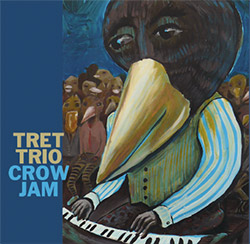

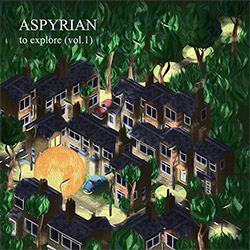

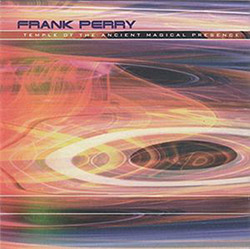




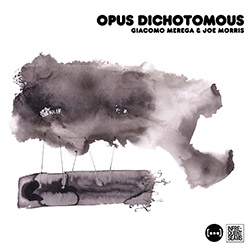
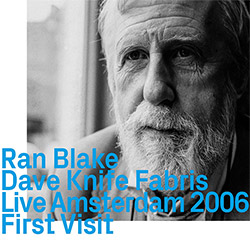
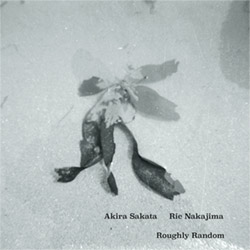
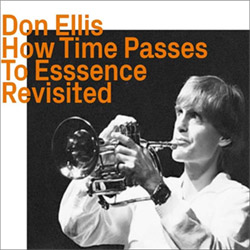

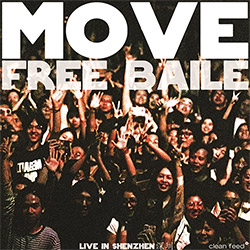

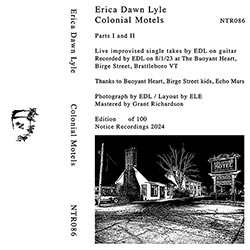
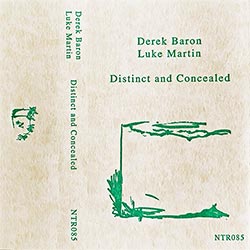

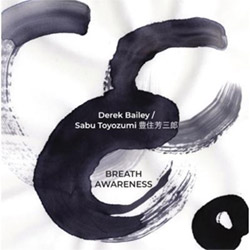
















![Deupree, Jerome / Sylvie Courvoisier / Lester St. Louis / Joe Morris: Canyon [2 CDs]](https://www.teuthida.com/productImages/misc4/36404.jpg)


![Eternities: Rides Again [CASSETTE]](https://www.teuthida.com/productImages/misc4/36247.jpg)

![Lopez, Francisco: Untitled (2021-2022) [2 CDs]](https://www.teuthida.com/productImages/misc4/36438.jpg)




![Eventless Plot | Haarvol: The Subliminal Paths [CASSETTE + DOWNLOAD]](https://www.teuthida.com/productImages/misc4/36232.jpg)












![Eventless Plot | Francesco Covarino: Methexis [CASSETTE + DOWNLOAD]](https://www.teuthida.com/productImages/misc4/36231.jpg)



![Das B (Mazen Kerbaj / Mike Majkowski / Magda Mayas / Tony Buck): Love [VINYL]](https://www.teuthida.com/productImages/misc4/36329.jpg)



![Hemphill Stringtet, The: Plays the Music of Julius Hemphill [VINYL]](https://www.teuthida.com/productImages/misc4/36409.jpg)



![Halvorson, Mary Septet: Illusionary Sea [2 LPS]](https://www.teuthida.com/productImages/misc4/17952.jpg)






![Money : Money 2 [2 CDs]](https://www.teuthida.com/productImages/misc4/35894.jpg)




![Klinga, Erik: Elusive Shimmer [VINYL]](https://www.teuthida.com/productImages/misc4/36258.jpg)
![CHANGES TO blind (Phil Zampino): Volume 9 - I Wave on a Fine Vile Mist [CD + DOWNLOAD]](https://www.teuthida.com/productImages/misc4/36061.jpg)

![Wallmart / Rubbish: Asset Protection [split CD]](https://www.teuthida.com/productImages/misc4/35900.jpg)


![+Dog+: The Family Music Book Vol. 5 [2 CDs]](https://www.teuthida.com/productImages/misc4/35897.jpg)
![Kuvveti, Deli : Kuslar Soyledi [CASSETTE w/ DOWNLOAD]](https://www.teuthida.com/productImages/misc4/36107.jpg)

![Nakayama, Tetsuya: Edo Wan [CASSETTE w/ DOWNLOAD]](https://www.teuthida.com/productImages/misc4/36105.jpg)




![Yiyuan, Liang / Li Daiguo: Sonic Talismans [VINYL]](https://www.teuthida.com/productImages/misc4/35957.jpg)
![Brown, Dan / Dan Reynolds: Live At The Grange Hall [unauthorized][CASSETTE]](https://www.teuthida.com/productImages/misc4/36245.jpg)








![Palestine, Charlemagne / Seppe Gebruers: Beyondddddd The Notessssss [VINYL]](https://www.teuthida.com/productImages/misc4/36206.jpg)
![Palestine, Charlemagne / Seppe Gebruers: Beyondddddd The Notessssss [NEON GREEN VINYL]](https://www.teuthida.com/productImages/misc4/36207.jpg)

![Laubrock, Ingrid: Purposing The Air [2 CDs]](https://www.teuthida.com/productImages/misc4/35639.jpg)

![Yoko, Ono / The Great Learning Orchestra: Selected Recordings From Grapefruit [2 CDs]](https://www.teuthida.com/productImages/misc4/35841.jpg)









![Zorn, John / JACK Quartet: The Complete String Quartets [2 CDs]](https://www.teuthida.com/productImages/misc4/35609.jpg)

![Lonsdale, Eden: Dawnings [2 CDs]](https://www.teuthida.com/productImages/misc4/35480.jpg)



![Sorry For Laughing (G. Whitlow / M. Bates / Dave-Id / E. Ka-Spel): Rain Flowers [2 CDS]](https://www.teuthida.com/productImages/misc4/35985.jpg)

![Rolando, Tommaso / Andy Moor : Biscotti [CASSETTE w/ DOWNLOADS]](https://www.teuthida.com/productImages/misc4/36106.jpg)


![Electric Bird Noise / Derek Roddy: 8-10-22 [CD EP]](https://www.teuthida.com/productImages/misc4/35970.jpg)








![Elephant9 : Mythical River [VINYL]](https://www.teuthida.com/productImages/misc4/34624.jpg)



![Elephant9 with Terje Rypdal: Catching Fire [VINYL 2 LPs]](https://www.teuthida.com/productImages/misc4/35355.jpg)
![Deerlady (Obomsawin, Mali / Magdalena Abrego): Greatest Hits [VINYL]](https://www.teuthida.com/productImages/misc4/34876.jpg)







![Surplus 1980: Illusion of Consistency [CD]](https://www.teuthida.com/productImages/misc4/35069.jpg)
![Staiano, Moe: Away Towards the Light [VINYL + DOWNLOAD]](https://www.teuthida.com/productImages/misc4/35037.jpg)
![Coley, Byron: Dating Tips for Touring Bands [VINYL]](https://www.teuthida.com/productImages/misc4/17906.jpg)

![Lost Kisses: My Life is Sad & Funny [DVD]](https://www.teuthida.com/productImages/misc4/lostKissesDVD.jpg)